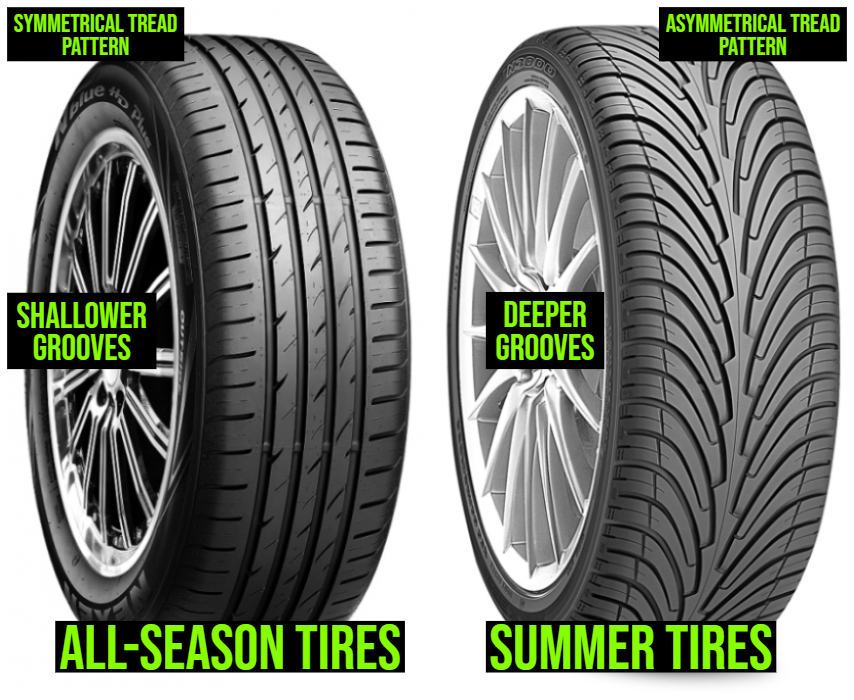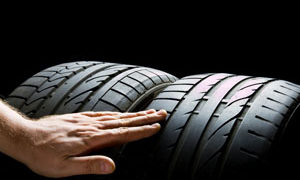
What’s the difference and what’s best for you?
The age old debate of summer tires vs all season tires will likely go on forever, but it doesn’t have to be the case. These two types of tires each have their benefits and their shortcomings, but knowing what you are looking for in a tire along with the basic fundamentals of summer tires vs all season tires will help you answer all the questions that you may have.

There are quite a few differences in the summer tires vs all season tires debate. Summer tires are geared for what they’re named after: warm summer weather. All season tires, however, are more of a universal year-round tire.
If you live in warm climates where temperatures never drop below 45-degrees Fahrenheit, then summer tires may be a good option for most of your yearly driving. Summer tires are made from a softer rubber compound than other types of tires that allows for better grip on dry and wet roads. This compound lends itself to better overall performance, however at temperatures below 45-degrees, it hardens and becomes brittle leading to a rapid decrease in grip and performance. This can lead to very unsafe and dangerous driving conditions, which is why they are only recommended for use during the warm summer months when those temperatures aren’t seen. Unfortunately, the summer tire’s temperature range limits it from being used in climates that experience four seasons.

All season tires, on the other hand, have a harder compound that is able to perform in virtually all normal temperature ranges seen through a four-season climate. The compound is still able to perform whether it’s in cold winter temperatures or if it’s a sizzling summer heat. With that said, this harder compound will never be able to generate the same amount of grip as a softer summer tire compound in warm weather. In temperatures under 45-degrees, it will outperform a summer tire and still be safe to use.
All-season tires also have the benefit of longer wear. The harder compound and deeper grooves in their tread allows them to experience wear from the road at a slower overall rate than summer tires. The softer compound is summer tires is worn away quicker, giving them a shorter overall life. Throw in the fact that some drivers use them in more performance-oriented applications, and their life is shortened even more.

In terms of all-around performance, there’s no question that the summer tire wins in the summer tires vs all season tires debate. In normal temperatures above 45-degrees, summer tires will be able to generate more grip, offer better handling dynamics, and provide a better steering response. All-season tires will be able to provide average levels of performance but that performance is sacrificed because of the harder rubber compound and the tread pattern used in their design.

All season tires are designed with a symmetrical different tread pattern that sees more variations with deeper grooves. This enables them to disperse snow and water while still offering a good contact patch with the road below. Summer tires have a more asymmetrical tread pattern with a solid rib which allows for an efficient way of redirecting water away from the tread for better wet and dry traction than all-season tires. This does, however, strictly limit them in winter conditions (which you should never be using summer tires in anyways!).

There may be a lot of differences and even confusion in the great summer tires vs all season tires debate, but if you know what you are looking for in your driving style as well as what kind of climates and conditions you will be experiencing, you will be better apt to make the proper decision.
Get your Summer Tires or All Season Tires Today!








